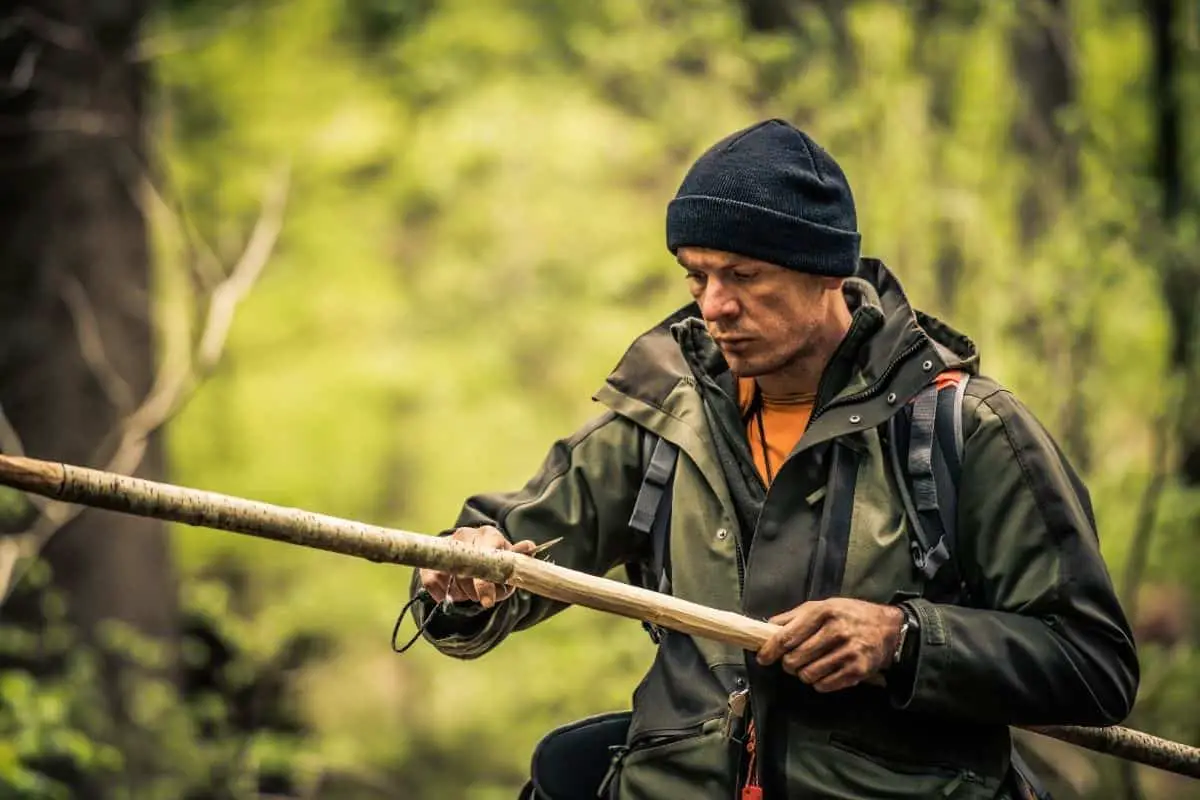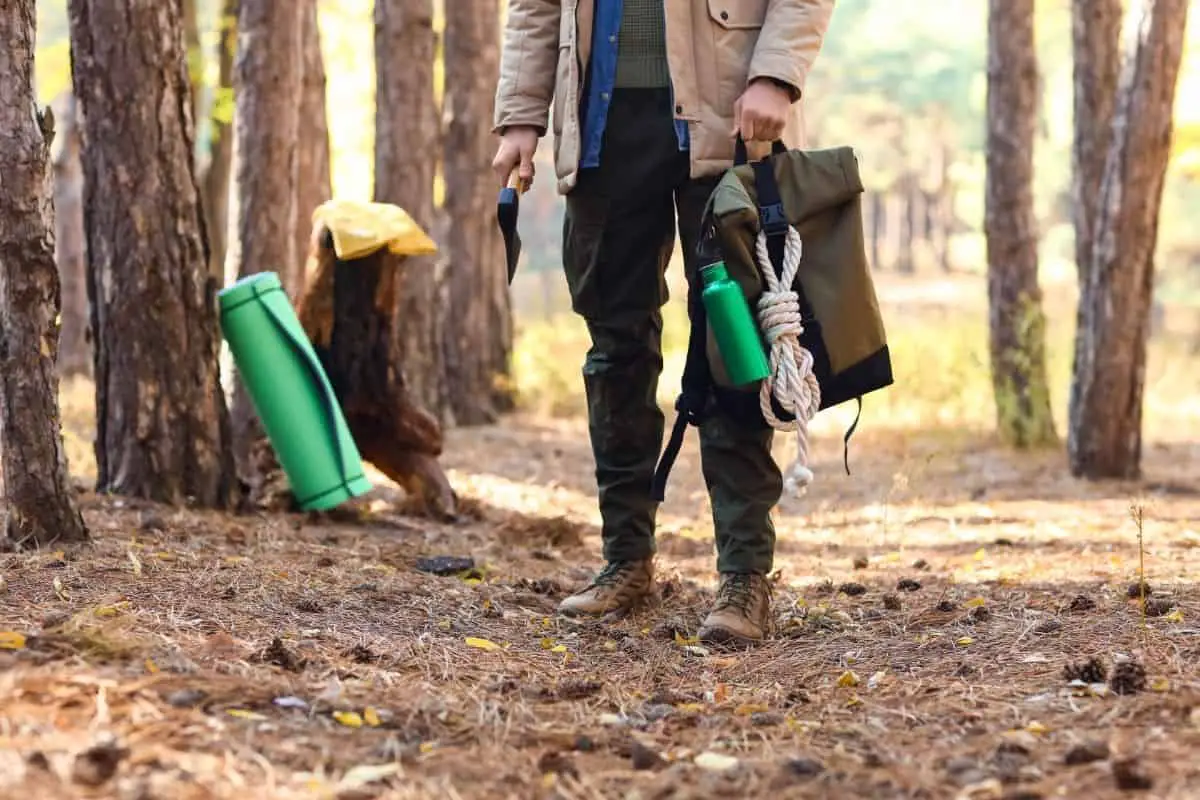We’ve all heard of survivalists and maybe even met some. Today, survivalists have become more famous than ever thanks to appearing on TV shows and even writing best-selling novels.
You may think that we’re all survivalists. In fact, aren’t all animals? The mere fact that we strive to stay alive every day equals survivalists, right? Well, not quite.

Generally speaking, a survivalist is someone who actively practices survivalism. This is a basic attitude based on survival being their core concern.
In other words, a survivalist is an individual who works at ensuring their own survival or the survival of other people.
It’s someone who is prepared to resist a crisis through different means and is ready for future unforeseen emergencies.
Today, we are going to explore what a survivalist is in greater detail, so you can understand these individuals better.
A Survivalist Definition
Many of us think about the future and what it has in store. But, if you are overly concerned about what is to come, and you continuously prepare for future possibilities, then you are most likely a survivalist.
If you stockpile food or make plans for what to do in certain situations, you are practicing survivalism.
Often referred to as a ‘prepper,’ a survivalist is an individual who is always thinking about what will happen in the future.
The number one goal of a survivalist is to get through and survive a catastrophic event such as Armageddon or Doomsday.
Survivalists are described as crusaders by some. Their beliefs are centered around various factors such as wisdom, faith, knowledge, and patriotism.
Their goal is to take full responsibility for their life and in order to do so, they must be closely in touch with their mind, body, and soul.
You may think it’s quite melancholic behavior if you’re sitting and planning for judgment day, but survivalists expand their knowledge every day.
They are not considered ‘negative’ people. Instead, they can be a big part of a local community and are often loved by those around them.
That being said, not all survivalists are the same.
There are two types of survivalists
- Those who prepare for Doomsday
- Those who are worried about our ecosystem and the conservation of Earth
Of course, some survivalists fit into these two groups, but most will have their own, personal definition of what survivalism really is to them.
The majority will agree, however, that being a survivalist is a way of life that is established through principles. And, they each have a personal goal to improve themselves and the world around them.

What Survivalists Do
Depending on what type of survivalist they are, individuals with this lifestyle tend to do the following
- Live sustainably
- Stockpile food and goods
- Make protection strategies
- Do a lot of good in their community
Living sustainably
Ask most survivalists, and you will probably find they live a sustainable lifestyle. They are concerned about conservation, so are always looking for ways to reduce their carbon footprint in the World.
Many survivalists grow food organically, use passive energy sources, and try to use as little fossil fuels as possible. Instead of relying on modern technologies and social systems most abide by, survivalists will go ‘off the grid,’ meaning, they live sustainably.
Right now, you may be thinking of naturalists and yes, many naturalists are survivalists, but the common goal between many of these people is to try and improve the state of our planet.
Stockpiling food and goods
If you’re about to start planning for the ‘end of the world,’ the first thing you’d need to do is start stockpiling certain items and food.
This is exactly what many survivalists do. They will typically have a fresh water supply stored away, along with emergency items such as medication and first aid kits.
As the name ‘prepper’ suggests, these folks will prepare food and drink months in advance for possible emergencies.
This leads to a pretty frugal lifestyle where little waste is produced, and little money is spent. But, most of us need money somehow.
That is why some survivalists stockpile money for a rainy day. When a crisis hits, they will have reserves ready.
Don’t think these people live without some modern amenities, however. Most will have a generator and solar energy sources to power freezers for food items.
Many survivalists live within their means, but tend to have a lot of land around them. Therefore, they can stockpile using their gardens.
They can grow different vegetables and fruits and teach each generation how to live off the land. Nevertheless, some survivalists live in the city but take advantage of small terraces to grow their food.
If they have the extra land, though, survivalists may also have animals to provide them with milk, eggs, and meat. That is, unless they are vegan, which many survivalists are.
Protection strategies
If a crisis occurs, survivalists are prepared with protection strategies. This is to keep themselves and their families safe.
This can include building underground bunkers or simply preparing with weapons and tools. Some may learn self-defense techniques for further protection if needed.
Doing good
Many survivalists have a deep-rooted faith and spread love and joy around them. Instead of spreading fear, they try to spread positive energy with their community.
This is done through common sense and helping people learn how to care for the surrounding environment.
Survivalists will fight for basic rights and the values that they hold so dear to them. As well as wanting to project themselves and their families, they want everyone to be safe in the time of an emergency.
In Summary
Survivalists are all around us. They prepare for future ‘Doomsday’ events through stockpiling, spreading positivity and good in their communities, and caring for their environment.
Survivalists are ready to defend, protect, and sustain when the time comes.

